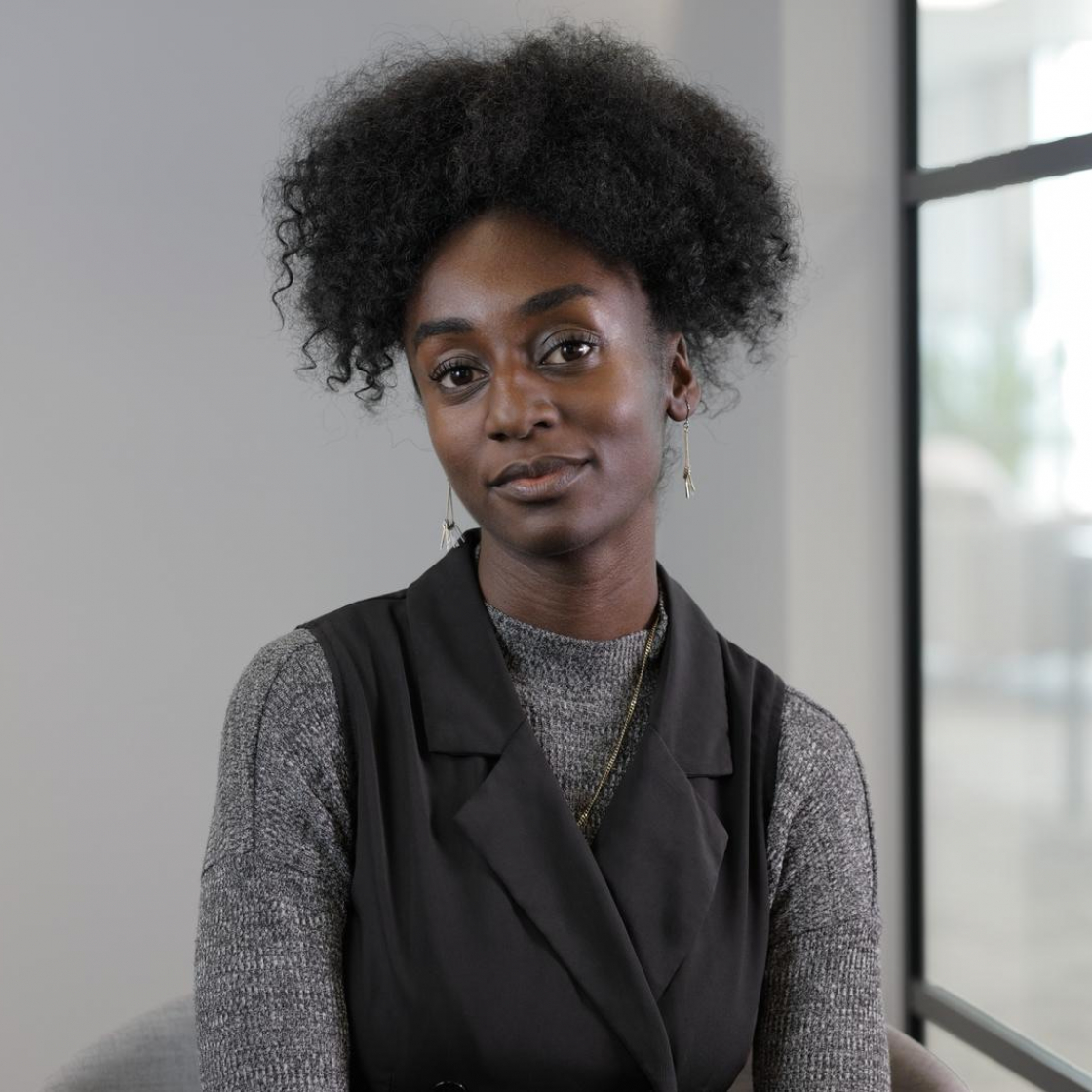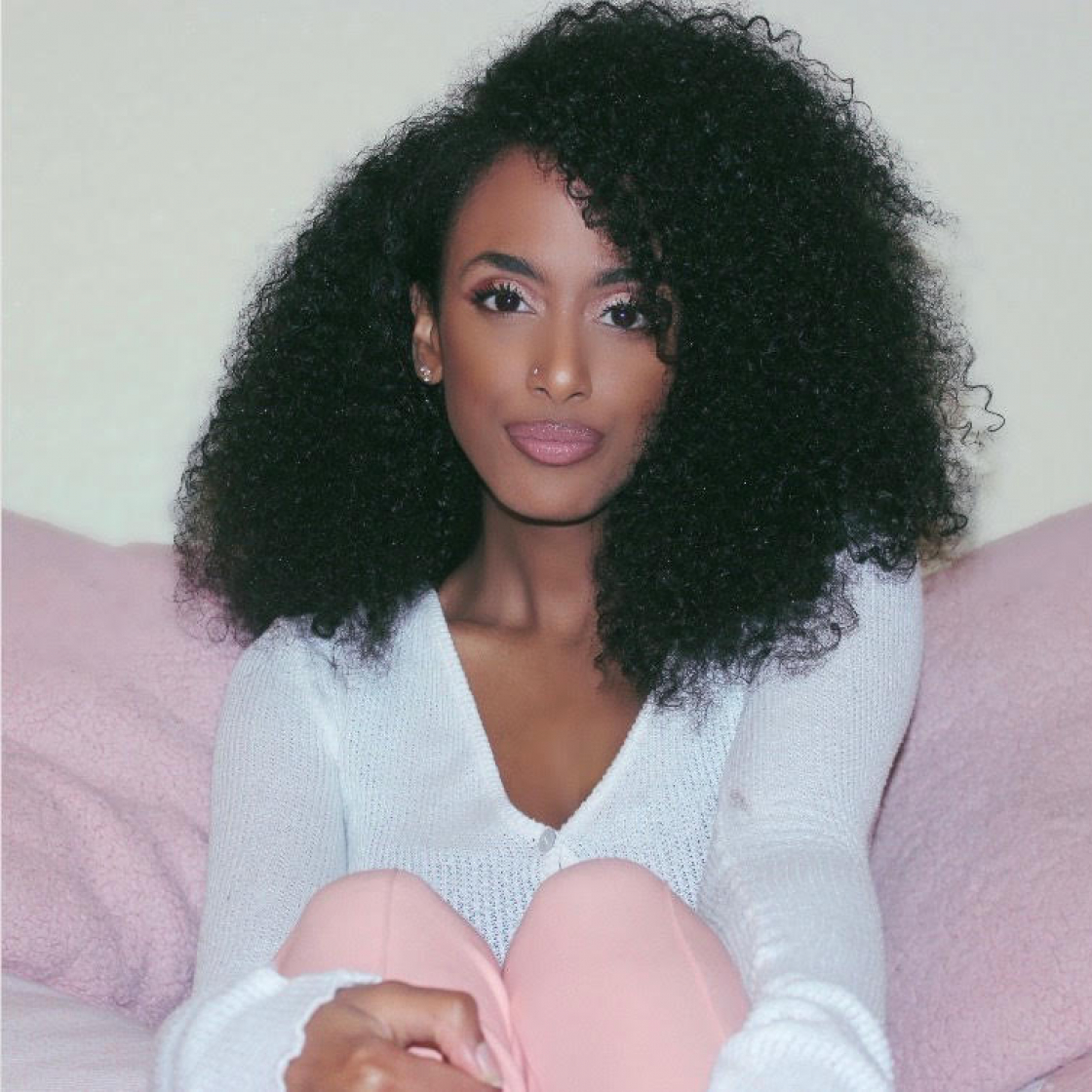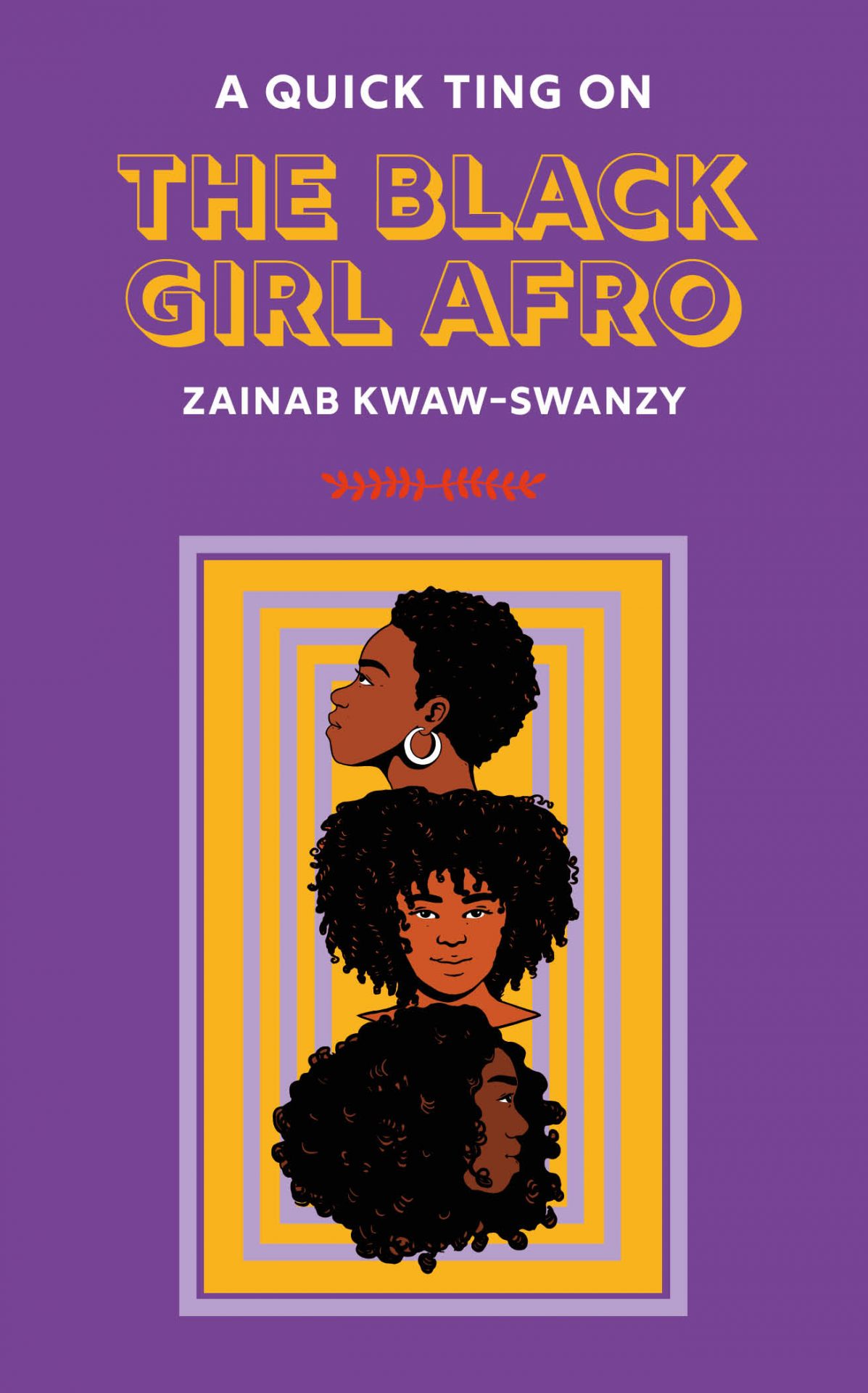Written by Morgan Fargo
Read an extract from the book dispelling four harmful myths about Black hair.
Myths about Black skin, hair and beauty are (and have for a long time) been rife in popular culture, spurred on by misinformation and misunderstanding. Take, for example, the common myth that Black people don’t need to wear SPF due to higher levels of sun-protecting melanin – a dangerous, pervasive myth with potentially devastating health implications. Or, that Black women need to buy into specialised skincare. Again, not true. Unfortunately, when it comes to Black hair, the same thing can be said – a number of long-disproved myths are floating around and still thought to be true.
In this extract, Zainab Kwaw-Swanzy, author of the new book A Quick Ting On The Black Girl Afro (part of the A Quick Ting On series by Magdalene Abraha) breaks down four common Black hair myths.
Before we get into the brilliant and hairy science of Black hair we must dispel a few myths. Myths in hair and beauty are a byproduct of topics we do not fully understand and when it comes to Black hair, there is a lot of misinformation (which is why reading this book is a great idea!). This section shall go into some of the most widely spread myths about natural Black hair, explaining how and why they are not true.
1. Afro hair doesn’t grow
All hair grows. On average, Afro hair can grow up to half an inch per month (so six inches in a year), but some of that length will be lost to dead ends that will need to be cut off. Curly hair can also mask growth due to shrinkage, which can be frustrating because you are unable to see the extent of developments in hair length. However, shrinkage is a sign of healthy, elastic hair, and we should remind ourselves that having long hair is not the be-all and end-all. We should instead prioritise hair health over hair length!
2. Afro hair doesn’t need to be washed often
Due to the build-up of sebum, sweat, the hair products that we use and general exposure to the elements as we go about our day, it is important that we keep our hair and scalp regularly cleansed. Otherwise, the build-up will cause dryness. The general advice seems to be that Afro hair should be washed and conditioned once a week, and additionally moisturised in-between these washes to keep the hair supple.
3. Oiling your hair and scalp regularly is the key to keeping it moisturised
Oil-based creams and conditioners often make the hair more pliable and easy to style and manipulate. Synthetic, petroleum-based oils are cheap and therefore used in many products e.g. baby oil. They provide skin and hair with softness and shine as they prevent moisture from escaping. The molecules of these oils are too big to penetrate our hair, which is why they form a film on the hair that can cause build-up. Oils are not true sources of moisture, which is why many Black women may still be prone to dryness and breakage no matter how much they try to cream or oil their hair. You need a moisture-based product combined with a protein-based product to keep your hair hydrated and thriving.
4. DIY protein treatments are better than shop-bought ones
The majority of proteins are too big to penetrate the hair and so they sit on the surface of the hair instead. Protein treatments strengthen the hair but can also make it stiff if overused. This results in dry and brittle hair that can break easily, hence the importance of balancing protein with moisture. You may have come across people recommending protein treatments using ingredients such as yoghurt, egg and avocado.
The problem with these sources of protein is that the molecules are too big—they will coat the hair but not get inside to strengthen it. To summarise, protein treatments are great in moderation and please experiment with DIY treatments at your own risk. I have heard one too many horror stories of women making a lovely homemade egg-protein treatment, applying it to their hair and mistakenly rinsing it out using water that is much too hot. The result? Scrambled egg on your scalp! A new hairstyle or a quick snack? I’ll leave you to decide.
buy now
Coconut oil is one of the only oils with molecules small enough to penetrate the hair shaft and under the cuticle layers, preventing loss of protein. This makes it beneficial in hair care, especially before shampooing. When washing hair, we know that this causes the hair to expand and then contract, and when this happens too drastically, it can cause breakage.
Applying coconut oil to your hair before shampooing it (called a pre-shampoo or pre-poo treatment) means that the coconut oil molecules bind to the hair, allowing less space for water to come in. This protects the hair from damage from drastic expansion and contraction.
A Quick Ting On: The Black Girl Afro explores the rich cultural history of Black women’s afros weaving in anecdotal tales from Black women along the way. Complete with intimate interviews and real-life stories about natural hair journeys, science, popular culture, information from experts and the massive impact of social media.
The book is part of A Quick Ting On, the first non-fiction Black British book series created and produced by writer and award-winning publisher Magdalene Abraha, and is available from all good book stores.
Shop A Quick Ting On: The Black Girl Afro by Zainab Kwaw-Swanzy now at Waterstones, £9.99
Main image: courtesy of Zainab Kwaw-Swanzy and Magdalene Abraha.
Source: Read Full Article


